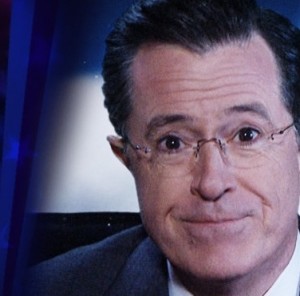 The latest initiative to recast the fate of one the world’s iconic newspaper companies sounds like a bad April Fools joke. Tribune Publishing has decided to re-brand itself as “tronc,” tossing aside one of the world’s great brands to be known as “The Company with the Name That Sounds Like a Crappy 70s Movie.”
The latest initiative to recast the fate of one the world’s iconic newspaper companies sounds like a bad April Fools joke. Tribune Publishing has decided to re-brand itself as “tronc,” tossing aside one of the world’s great brands to be known as “The Company with the Name That Sounds Like a Crappy 70s Movie.”
Only in the newspaper industry would “tronc” be considered a good idea. In the newspaper business finding new ways to piss off people is what passes for innovation.
As the Tribune flails, it’s time for the newspaper industry to face reality. No more dancing around the obvious. The demise of the newspaper companies was no accident. And it was not the sad, inevitable result of that darn Internet.
Newspaper companies didn’t have to die. They were killed off by an unprecedented run of incompetence and dumbass decisions. We’re talking mismanagement of historic proportions. A generation of newspaper owners and executives wasted billions of dollars in equity and destroyed the good names of media companies around the country.
The industry is in denial, clinging to the myth of a plucky band of Dockers-lovin’ managers fighting to a save “Journalism” from the irresistible tide. That’s ridiculous. Industry managers arrogantly ignored the brick hurtling toward their faces. And even after the brick slammed home, they still refused to change their ways.
Someday economic students will study the demise of the newspaper industry for examples of how not to run a business in tumultuous times. Faced with unprecedented competition, newspaper execs raised prices and dramatically cut the quality of their product. They allowed Craigslist, a site that looks like it was created in a community college computer class, to destroy their classified advertising business. And the list goes on.
Perhaps most egregious, in an age of revolution, newspapers were the Land that Ideas Forgot. The Internet didn’t kill media; it spawned the most exciting period for media in 50 years. A wave of new media companies exploded with billion dollar valuations, from Buzzfeed and Business Insider to Huffington Post and Vice. The one common denominator: newspapers participated in none of it.
It didn’t have to roll out that way. Newspapers were primed to capitalize on the modern era. “Content is king,” everybody said, and newspapers entered the fray with mountains of content, great cash flow, deep-rooted credibility and established relationships with advertisers. On top of all that, they had millions of people already paying money for their product, a huge first-mover advantage. And they blew it.
Instead of developing new products, newspaper companies squandered their capital buying other newspapers. Even when it was clear the concept of hand-delivering newsprint to homes was a dying model, they boasted about their “local monopoly,” now that all those other papers were dead. And they continued to scoff at the new media companies developing new audiences.
CNBC host Jim Cramer recently recalled what he found 20 years ago when he went around to newspaper companies to pitch TheStreet.com, his now-popular business site. “The newspaper guys told me if it became a big thing they’d be all over it,” Cramer said on his show, “Mad Money.” “Needless to say, by the time they figured it out, it was too late. All they ended up doing was creating suicidal versions of themselves on line.”
As the digital era took hold, the biggest newspaper companies, with vast resources and entrenched readership, floundered like beached whales. When the old guard gave up, surviving independent companies were snatched up by vultures, often bizarre individuals who stripped the value from companoes and left them for dead. (Current Tribune chairman Michael Ferro, a tech entrepreneur, follows real estate icon Sam Zell, who led the company into bankruptcy.)
Ex-employees have a right to be pissed. So do shareholders… and readers.
Even today, newspaper leaders appear to be playing a different game than the rest of the media world. While organizations battle for eyeballs and clicks, the daily newspaper looks pretty much the same as the newspaper of 20 years ago, except much smaller and much more boring. On the digital side, newspaper sites — our savior! — are still essentially electronic versions of the paper, usually with no clear business model. Something you will never hear in Silicon Valley: “Hey, I sure wish I was doing what that newspaper company is doing.”
“Every newspaper chain talks about getting digital faster,” industry analyst Ken Doctor recently told a reporter. “The plain truth is that despite almost two decades of effort, most aren’t close to where they need to be.”
You would think newspaper executives would be crazed wolverines these days, fighting for every scrap of revenue. Faced with the shocking declines, they would be trying anything, tapping new audiences, defending their existence with a frenzy of must-read, must-watch media while flipping the bird on an hourly basis to the Buzzfeeds and Ozys of the world.
Instead newspapers plod along, run by executives too scared to drop the Jumble, in fear of upsetting their aging readers. Those rascally kids don’t want anything to do with a newspaper, so why even try? Niche products? Heck, not really worth the time.
Newspapers are just hunky dory, industry executives say. Circulation revenue is stabilizing! Digital revenue growing! Newspapers will live on, they proclaim. And that may be true, to a degree. Most likely newspaper companies will survive just long enough for this current crop of executives to ride their sensible four-door sedans into the sunset to their tastefully decorated Palm Springs ranch homes.
Their legacy will be a scorched Earth of squandered resources, billions in financial losses and the demise of some of the most valued brands ever created. Under their leadership, the old newspapers lost half their revenue and the bulk of their relevance. And you can’t simply blame that on the darn Internet.
Kevin Brass writes regularly for the New York Times, Wall Street Journal and Financial Times. He is the author of “The Cult of Truland,” a novel set in the world of celebrity journalism.








